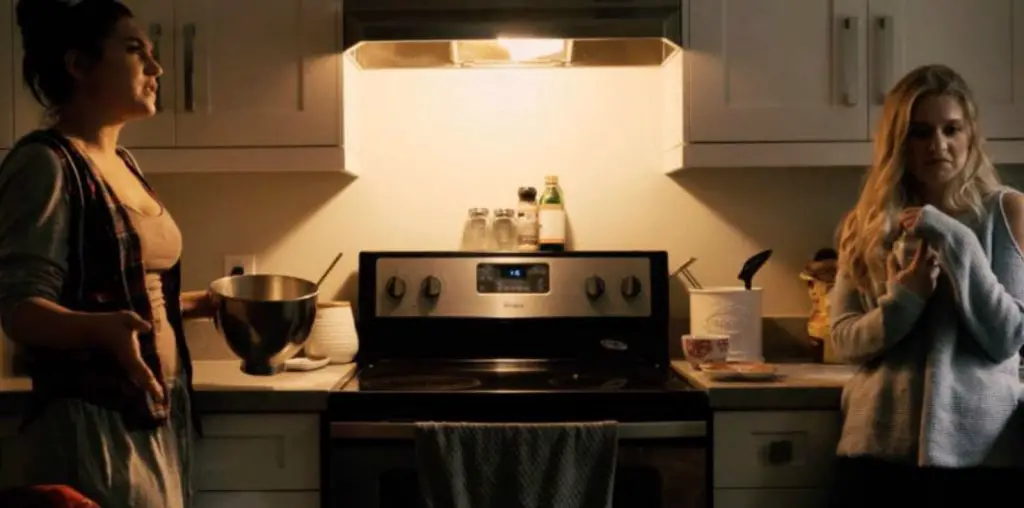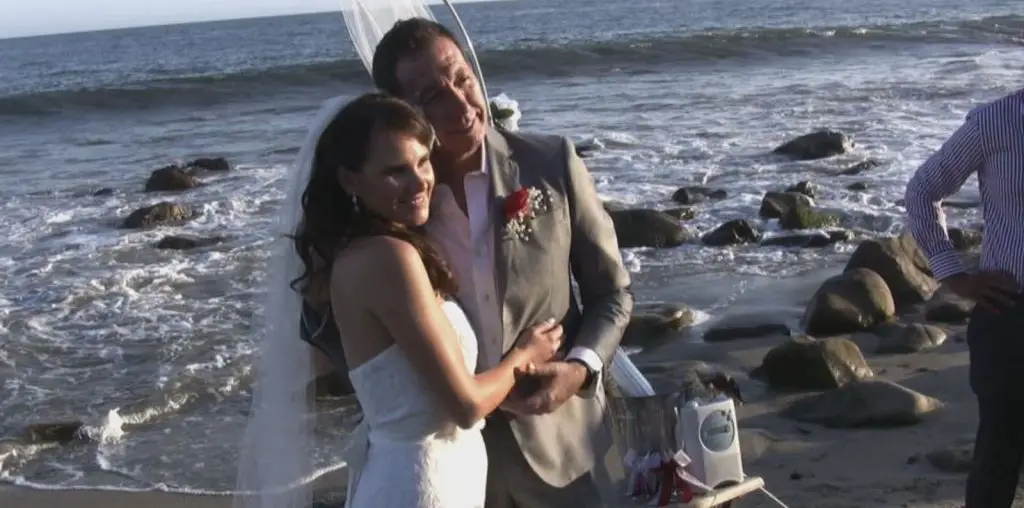
The Gun, The Cake & The Butterfly is an experimental documentary narrative hybrid feature about the life of writer, photographer, fashion editor and all-around artist Amanda Eliasch, written and directed by Eliasch, and sometimes even starring Eliasch. I say sometimes because, while we may hear what sometimes seems like a straightforward recounting of her life, or an exploration of certain ideas and philosophies, the person expressing them visually may not actually be Eliasch. Sometimes Eliasch is portrayed by Justine Glenton or Elizabeth Karr, sometimes Eliasch is on screen interacting with her proxy, confusing the idea of which is which, and what is truth. In the end, you’ve learned so much about Eliasch and yet, you feel like you know nothing.
If you’re focused solely on the superficial, you could make an argument to dismiss the film as narcissistic pablum. This opinion is not one that would surprise me in the least, but I also think it betrays a disinterest in exploring what is being said by what is not being said. Because in a somewhat autobiographical hybrid film about a person who morphs depending on which actor is portraying her, for example, the narrator cannot ever really be trusted. Thus there’s a mystery inherent in the execution.
And frankly, if the film were simply narcissism gone wild, why even pretend to try something more artistic or experimental with the film? Why not just do a typical documentary with a bunch of talking heads proclaiming the greatness of Amanda Eliasch, while she paints herself as awesome? No, maybe I’m just optimistic at heart, but I think this film has more going on than just the obvious elements at the surface. I think the choice of juxtaposing certain elements of carefree life and glamour with the more conflicted stories of love lost, sought or gone awry adds depth to the piece. Even those elements can be explored further when you consider that, just because these are the moments the artist has revealed, doesn’t mean they’re entirely truthful. We’re meant to believe in what we see and hear, but the entire landscape is shifting all the time.
So I think this is a film that can reward study, and is one that is friendly to multiple interpretations, even if the possibility always exists that is it precisely what it superficially says or shows, and the mental gymnastics are of our own projections and not of the filmmaker’s. I’d be open to any argument, honestly, and I think the film could withstand it too. Maybe the Emperor has no clothes, sure, but maybe no Emperor ever did.
That said, the film does run a tad too long for my tastes. Even though it reveals its narrative at a consistent enough pace, the more experimental elements of the edit also lend to an expanse that isn’t always necessary to get this experience across. Simply, you could tighten the piece up without losing the momentum. Maybe the running time doesn’t change that much overall, but even the slightest tightening of the edit could refresh a sequence that is starting to linger.
Overall, I found The Gun, The Cake & The Butterfly to be an intriguing film, however, whether I’m putting more on it than is there or not. I can see the most negative interpretation of the film as having validity, and also could be convinced of the most praising. I don’t entirely believe what I see or hear, but I likewise don’t know that what is not said or heard is completely truthful either. It’s a fantastical hybrid of documentary and narrative. It is everything you think it is, and yet not.


You are the first to understand the truth and lies in a persons life, in this case mine. Is it truth is the a lie? Do I exist? Am I important? An intelligent and correct portrayal of my film seen in a philosophical way. Am I just another blonde? Am I a brunette, does it matter? We are all dust and lost in the wind”. I am personally glad that you the writer understood this and had an intelligent approach to my film, that he also enjoyed it..